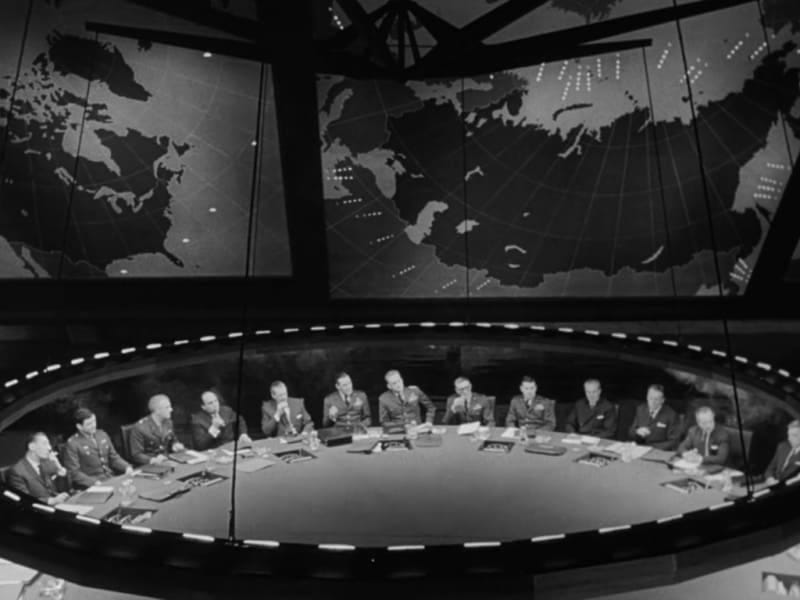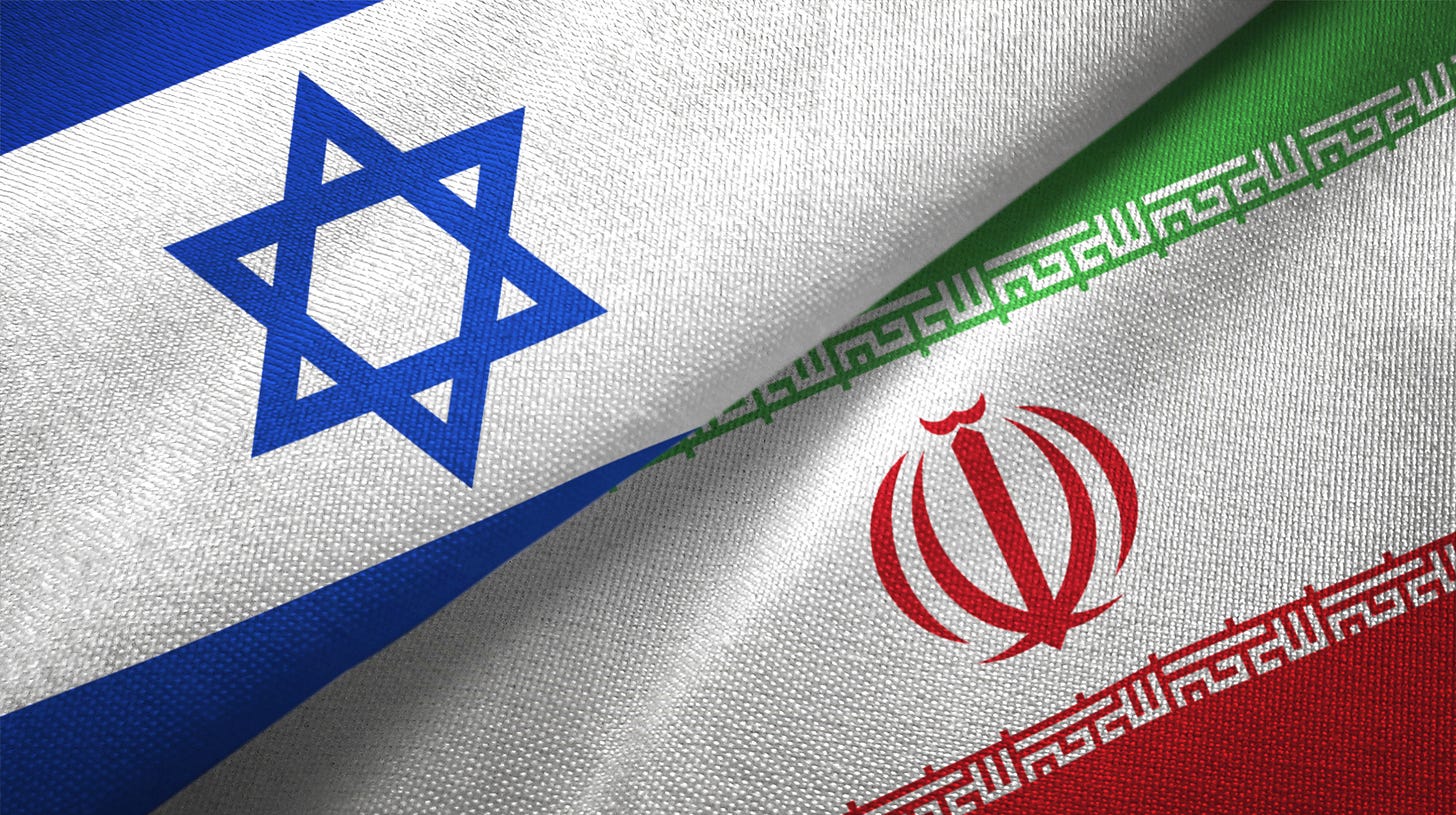Explaining War
Thoughts on explaining international conflict to younger generations…and ourselves

One cannot turn on the news today without encountering coverage of the escalating war between Israel and Iran. No matter your position, it is impossible to deny that the conflict is heightening with a peaceful resolution seemingly out of reach. A major difference between this war and major hostilities of years gone by is the wall-to-wall coverage afforded by a litany of social media platforms. Rather than waiting to be at home to see updates and images on television, a simple glance at a smartphone can immediately provide timely information. With this infiltration of up-to-the-minute journalism comes an ability of not only adults, but children as well having this written and visual imagery before their eyes. Now that I am not only a teacher, but a parent, I must begin to ponder the methodology with which I will discuss war and its implications with those younger than myself, should they desire to know more.
As a child, my exposure to major warfare involving the United States was limited, but I mainly remember the Persian Gulf War from my elementary school days, as well as the War on Terror that commenced while I was an undergraduate student. Our armed forces provided assistance in other wars, but not to the point of the aforementioned conflicts. By the simple fact of my not yet being born, I have no memory of the Vietnam War, and as I reached the second grade, the Cold War had come to a decisive end with the fall of the Berlin Wall. So, to see the potential for our nation to step into a war that may have far-reaching implications, the need to discuss it is paramount, not only for the comfort of youth who may be frightened, but to keep my own sanity.
This morning, pundits on all news networks have Israel and Iran on their minds, and the coverage is impossible to avoid. The main point of discussion this morning is the potential for the United States to step into the foray if only for the fact that our nation possesses the necessary munitions to destroy an Iranian nuclear facility deep underground in which the necessary steps for Iran to build a nuclear weapon are taking place. Israel, utilizing their own military, currently is keeping Iran at bay, but many believe that if Iran is to truly be stopped from obtaining a nuclear bomb, the United States must lend assistance via the bunker-penetrating bomb.
Debate is raging on, and in the meantime, United States President Donald Trump is in constant communication with intelligence leaders as well as military advisors. With Trump as the polarizing president that he is, there are those on both sides of the argument who hold vastly different opinions on what should take place. However, I believe that no one should be envious of the perilous situation in which he is, having to make what may be not only the most important decision of his presidency, but of his entire life. While many believe the bombing of the underground facility to be necessary, our involvement could lead to a deepening of conflict that would not only affect the Middle East region, but potentially the United States at home. While many believe that America should not become involved, it may become necessary as indiscriminate attacks by Iran continue on the Israeli people. Just this morning, an Iranian missile hit a hospital in Tel Aviv, injuring over two hundred individuals, including children and the elderly.
Whether clamoring for United States involvement or holding fast to the belief that peace should be given an opportunity to flourish, it is important to step back to remember that the horrors of this war are readily available for children to view on their litany of devices. Even a young person whose parents have managed to keep iDevices out of his or her hands can easily turn on the television to see what is happening in the Middle East. This has the potential to be a flashpoint for feelings of fear, wondering if the bombs that are dropping thousands of miles away may come closer to home. As adults, especially as it comes to Middle East conflict, we have been here before. For decades, we have watched fighting in that volatile area of the world, and while I don’t want to say that it has become second nature, it’s not as if it is something brand new. Yet for our children, the newness of this conflict may worry them.
As adults, this is where in a society where it is becoming nearly impossible to do so, we should put our political affiliations and biases aside, and converse with our children in a way that is honest to a point appropriate for their ages. I imagine that if our four-year old daughter were to ask that a detailed explanation of Middle East politics or war itself would be off the table, but in her case, I would offer comfort. I would offer words that state that war is a horrible event that shouldn’t happen, and that a swift end is desired. I would offer words that remind children that they are safe. With the child’s increased age and maturity will come the need to offer a more detailed and honest explanation that would have to tap into the root causes of the conflict, which would lead to my own need to understand the geopolitical and historical issues at play. With the obvious need to shield young people from the horrors of war, I believe that even the youngest of children should not be lied to, but rather given age-appropriate explanations with the condition that they can ask questions, and that they will be answered appropriately. Although whenever sabers begin to rattle, the first priority must be to comfort, and assuage fears to the best of our ability.
War is not a novel concept. Battles have been fought for millennia, yet as the years have passed by, the weapons with which soldiers fight have become more advanced, and capable of killing exponentially more people with one fell swoop. While outright war and haphazard violence is never a desired outcome, does there ever come a point where a point of no return is reached, and this comes after years, if not decades of attempted diplomatic strategies to quell the danger. One needs to look no further than the Iranian question, whereas for many years, it has been nearly a universal stance worldwide that the country should not be in possession of nuclear weapons. Yet despite all of the best efforts, including treaties, peace, and diplomacy, a war has begun. Did Israel have intelligence to believe that development was imminent? I do not have the answer to that question and will never pretend that I do.

As the war between Israel and Iran began last week, I approached a young co-worker a year or so shy of twenty and expressed concern for not only him, but his family as well. His ethnicity is Iranian, and his parents immigrated from Tehran shortly after the Islamic Revolution. When he came home the night that the war began, he found his mother in front of the television in tears, as she told him that Israel had begun bombing Iranian targets. He continued on to tell me that his mother’s tears were not simply tears of sadness, but joy as well. Both of his parents were approximately thirteen years of age when the Islamic Revolution occurred in 1979, and they both have vivid memories of the country that Iran once was. Their belief that this could be the catalyst for change and a return to the country they remember is one that gives them hope. He also mentioned to me that his parents believe that the Israeli forces are avoiding civilian targets to the best of their ability, while the Iranian attacks are not. Hearing that perspective was stunning, as it greatly differed from what I had expected. Not only is my co-worker on my mind, but a former English professor from the University of Rhode Island who has since returned to Israel and is teaching at The Hebrew University of Jerusalem. Having acquaintances on both sides of the conflict increases my desire to see a swift end to the fighting.
I would be remiss not to mention what I believe to be the impossible levels of courage of the news correspondents who are reporting live from the ground in both countries. Not only have I seen reporters sheltered into bomb shelters in Israel as bombs soar overhead, but watched unforgettable footage of an Iranian TV anchor reporting live from the studio as it was struck by bombs. As adults, we have a desire to be informed so that we can inform others, and we must tip our caps to those who are providing the information from the scene of the fighting.
As I bring my writing to a close, the perilous situation in which our Commander-in-chief finds himself is one with no easy answers. If you were to put me on the spot and demand my thinking as to the outcome, my gut tells me that we will aid Israel in the destruction of the underground nuclear facility. It is my hope that if that were to be accomplished, our involvement would cease, as would the war altogether. However, I don’t have an easy answer. If there’s one thing that I’ve learned with age, it’s that at some point, our ego has to dissipate as we come to grips with the fact that we don’t know it all. We can think we know, or have an opinion, but the events must be allowed to play out. My answer to the conflict is that we must pray for peace, a de-escalation in violence, and have hope that a conflict that is geographically isolated at this time does not spread across the globe.




Thank you for this article, I appreciate the update very much. And I approve of your stance that children should not be lied to but given age-appropriate information!
Thanks for the well thought out piece, John. I've been vehemently against involvement, but hearing about the perspective of the Iranian expats at least made me think it over.